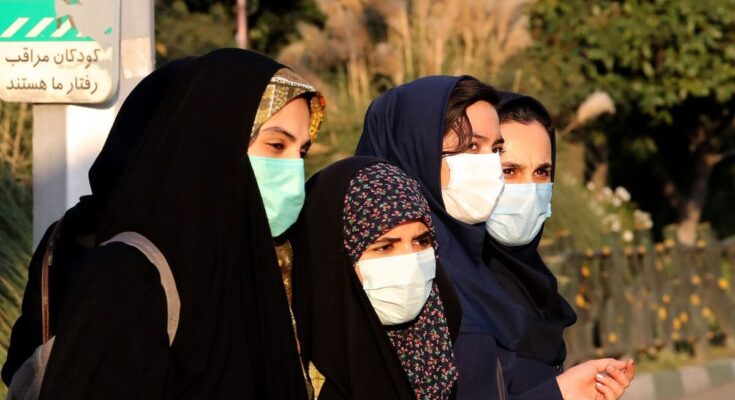Although the obligation to wear the hijab is increasingly disrespected in Iran, the head of the judiciary, Gholamhossein Mohseni Ejeï, a cleric, has called on his institution to be tougher on women who violate the dress code, according to local media.
Since 1979, Iranian women have been required by law to cover their hair in public and wear plain, loose-fitting clothing. But in big cities, especially Tehran, many women leave the house without a veil, and wear jeans and sneakers. Some even chose clothes with low necklines or sheer clothing that exposed their navels, attire that would have been unimaginable in Iran just a few months ago.
“I have ordered the Attorney General and all prosecutors in the country to ask the security and police services to identify (…) social anomalies,” said Gholamhossein Mohseni Ejeï, accusing this new trend in Iran of being “organized” deliberately by “foreign influences” in a “war of infiltration”.
Cafes and restaurants closed because they did not comply with the veil
“One manifestation of the enemy’s efforts lies in the issue of nudity and disrespect for the hijab,” added Gholamhossein Mohseni Ejeï, quoted Friday by the Etemad newspaper and the Fars agency.
The term nudity generally refers to clothing that is considered inappropriate. This phenomenon has become increasingly visible in Iran since the protests following Mahsa Amini’s death in custody in September 2022. The young woman was arrested by morality police for allegedly violating the dress code.
“We certainly cannot force women to wear the hijab,” Iranian government spokeswoman Fatemeh Mohajerani said last month, echoing President Massoud Pezeshkian, who has come under fire from conservatives.
His government last year refused to enact a law that would have drastically toughened penalties for uncovering women.
However, in recent months, authorities have closed several cafes and restaurants for non-compliance with the hijab requirement or for serving alcohol, which is prohibited in Iran.
“The hijab (is) the first defense of Iranian women’s Islamic identity. If this fortress collapses, other elements of culture and heritage will gradually collapse,” the ultraconservative Kayhan daily warned on Thursday.
Hundreds of people, including dozens of members of the security forces, were killed in protests across the country in 2022, and thousands of demonstrators were arrested.



